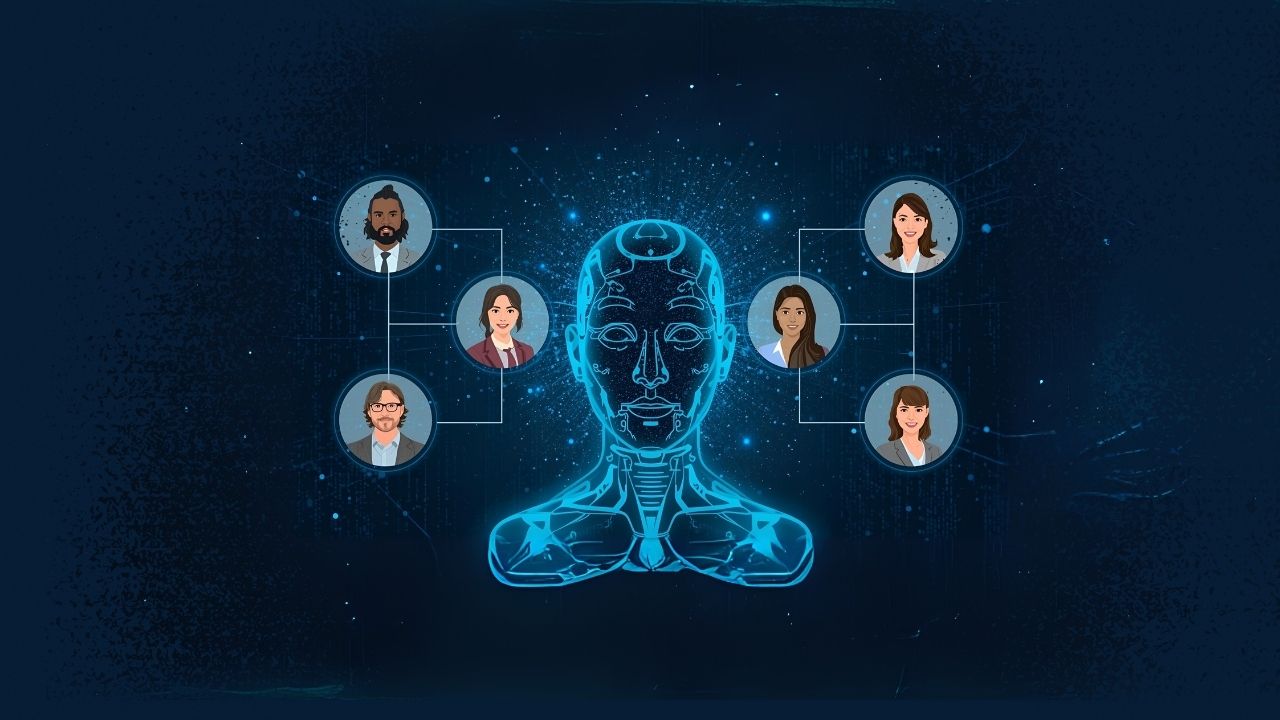Navigating AI in the Hiring Process: What Candidates Should Know in 2025

AI in the hiring process is no longer optional or experimental — it’s now a standard feature of how companies screen, assess, and select candidates. From resume ATS scanning to AI interviews, artificial intelligence shapes which applicants move forward and which get left behind. For job seekers, this shift creates both opportunities and challenges. To stand out in today’s market, you need to understand how these systems work and what steps you can take to stay competitive. This article explores how AI in the hiring process is shaping recruiting in 2025 and provides practical tips so you can adapt with confidence.
How AI in the Hiring Process Shapes Recruiting Today
Recruiters and hiring managers rely on recruitment technology to manage an overwhelming number of applications. Automated tools scan resumes for keywords, assess candidate skills through online assessments, and even analyze tone and word choice during AI-driven interviews. While this technology helps companies move faster, it also means candidates must adjust their approach. Instead of writing a resume only for humans, job seekers now need to optimize their applications for both people and machines.
Resume ATS and Keywords
One of the most common uses of AI in the hiring process is through resume ATS systems. These tools scan applications and compare them against job descriptions. If the right keywords don’t appear, strong candidates risk being filtered out before a recruiter even sees their information. The solution isn’t keyword stuffing — it’s tailoring each resume carefully. Use language from the job description, highlight measurable accomplishments, and keep formatting simple so the applicant tracking system can parse your details without error.
Online Assessments and Skill Testing
In 2025, many employers are using online assessments to verify candidates’ abilities. Coding challenges, timed problem-solving exercises, and role-specific tests are often powered by recruitment technology. These tools compare results against benchmarks or peer groups, helping companies identify top performers. For candidates, preparation is key. Practicing sample online assessments reduces stress and improves performance. Rather than viewing these as obstacles, see them as opportunities to showcase your skills in a quantifiable way.
Preparing for AI Interviews
Automated or AI interviews are increasingly common. Some companies use AI in the hiring process to analyze facial expressions, speech patterns, or word choice during video interviews. While controversial, these tools are growing in use. Candidates should prepare by practicing answers to common questions, speaking clearly, and maintaining professional body language. Treat an AI interview with the same seriousness as an in-person meeting, since your performance will likely be reviewed by both machines and humans.
The Benefits and Risks of AI in the Hiring Process
AI in the hiring process brings efficiency and consistency, but it also introduces risks. On the positive side, candidates benefit from faster responses and less human bias in early screening. On the negative side, algorithms may unintentionally filter out strong applicants if their resume doesn’t align perfectly or if cultural “fit” measures are misapplied. By learning how AI in the hiring process operates, you can better position yourself to be seen and evaluated fairly.
The Psychology of Candidate Experience
One overlooked part of adapting to AI in the hiring process is managing the human side of the equation. Many candidates feel frustrated when they can’t tell whether they’re interacting with recruiters or machines. Improving your candidate experience means setting realistic expectations, preparing for technology-driven interactions, and maintaining professionalism even in automated stages. Candidates who adapt mentally are less likely to feel overwhelmed and more likely to perform confidently.
Technology as a Competitive Advantage
Job seekers who understand recruitment technology can actually gain an advantage. By aligning their applications with resume ATS rules, performing well on online assessments, and preparing for AI interviews, they demonstrate adaptability — a trait highly valued by employers in 2025. This adaptability doesn’t just help you survive; it helps you thrive in a hiring landscape where AI in the hiring process will only continue to expand.
Industry Insight
Research from LinkedIn’s 2025 Future of Recruiting report shows that over one-third (37%) of organizations are now actively integrating or experimenting with Gen‑AI tools into their hiring processes, boosting recruiter efficiency by approximately 20% per week.
Ghosting, Delays, and the Human Factor
While AI in the hiring process is powerful, it cannot completely eliminate challenges like candidate ghosting or poor communication. Many candidates disengage when processes drag on or feel impersonal. The best strategy is to combine technology with strong human interaction. Recruiters who balance recruitment technology with genuine connection create a better candidate experience that reduces drop-offs and builds trust.
The Future of AI in the Hiring Process
Looking ahead, AI in the hiring process will only grow more sophisticated. Expect more predictive analytics, deeper integration of online assessments, and even smarter AI interviews. At the same time, soft skills and cultural alignment will remain critical. Machines can screen for qualifications, but humans still evaluate qualities like resilience, teamwork, and leadership. Candidates who adapt to recruitment technology while maintaining authentic personal interactions will stand out in 2025 and beyond.
Key Takeaways on AI in the Hiring Process
-
AI in the hiring process now influences every stage of recruiting, from resume ATS scans to AI interviews.
-
Tailoring applications with keywords increases your chances of passing automated filters.
-
Online assessments are opportunities to showcase skills, not just tests to endure.
-
Recruitment technology improves efficiency, but must be balanced with human interaction for a strong candidate experience.
-
Candidates who embrace AI in the hiring process while focusing on human connection will remain competitive in 2025.